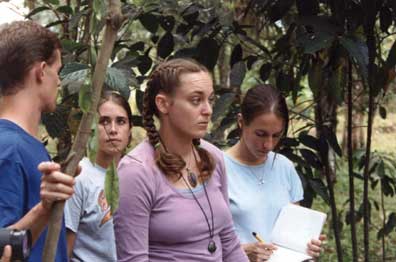
Maggie MacDonald, Manley Perkel and Allan Spetter say Series overlooked success stories
Series overlooked success stories
Parents profoundly affected by children’s Peace Corps experiences
By Maggie MacDonald, Manley Perkel and Allan Spetter
In An Unfinished Life: John F. Kennedy, 1917-1963, Robert Dallek writes that when President Kennedy created the Peace Corps on March 1, 1961, he saw as its purpose "to help foreign countries meet their urgent needs for skilled manpower."
He hoped the Peace Corps would allow Americans "to exercise more fully their responsibilities in the great common cause of world development." The president warned that the life would "not be easy." He proposed no salary, with allowances "at a level sufficient only to maintain health and meet basic needs."
Kennedy envisioned men and women working and living "alongside the nationals of the country in which they (were) stationed — doing the same work, eating the same food, talking the same language." He hoped the Corps would become "a source of satisfaction to Americans and a contribution to world peace."
As parents of recent Peace Corps volunteers, we wish to take issue with the one-sided portrayal of the Peace Corps presented by the Dayton Daily News in the series "Casualties of Peace."
The articles were sensationalist, failing to balance the accounts of tragedy with the overwhelming number of positive stories told by Peace Corps volunteers since 1961. We in no way wish to diminish the heartbreak of the stories featured in the series and other accounts of similar tragedies.
If the Peace Corps has made mistakes, then the organization must be held responsible. However, the Corps should also receive credit for its many successes.
We supported our children’s decision to learn and teach in distant parts of the world, and we, like they, have been profoundly affected by their experiences. Growing up, our children led privileged lives, far from the world’s turmoil and poverty. Instead of maintaining the status quo, they chose to give to those less fortunate; they received far more in return.
We knew, as did our children, that they were not going to summer camp or a semester abroad. Crime accompanies poverty, and in the poorest areas of countries in the most impoverished regions of the world, it would have been na•ve to expect the safe neighborhoods our children left behind.
They knew they would have to take precautions and build alliances. This would have been as true for disadvantaged neighborhoods in the United States as those described in the series.
Through the Peace Corps, our children have acquired knowledge and skills that will benefit them throughout their lives. Their occupations today are a direct result of their service. The impact of their experiences extends even further, to family and friends. As professors, we have brought many of these experiences to the university.
The struggles that Peace Corps volunteers experience are a daily reality for most of the world’s population. Our children came to understand the fragility of the freedom and privilege that so many take for granted. They sought to change the image of the United States, often seen as a spoiled bully by the world’s poorest citizens. By working with and for the people of a distant country, they strove to put a human face to their own country.
Did our children make a difference, and, if so, will that difference last? They know — more than most of us — that the challenges they faced were in some instances overwhelming. Nevertheless, each made a small contribution, changed a few lives.
Was this worth the sacrifice, the danger? They would all three reply enthusiastically, "Yes." Would they do it again, and would we want them to do so? Once more, the answers are an unqualified "yes."
We have no illusions about the grief and frustration we would have felt had tragedy befallen them. But we also know the pride we feel that they chose to make a difference. We recognize that the Peace Corps is not without problems. Yet flawed as it is, the world is a better place for it.
We fear that the result of "Casualties of Peace" won’t be a safer, more effective Peace Corps but, instead, a world diminished by its absence.
ABOUT THE AUTHORS
Maggie MacDonald, Manley Perkel and Allan Spetter teach at Wright State University. MacDonald is an associate professor of English and linguistics; Perkel is a professor of mathematics and statistics, and Spetter is a professor of history.
[From the Dayton Daily News: 11.06.2003]
